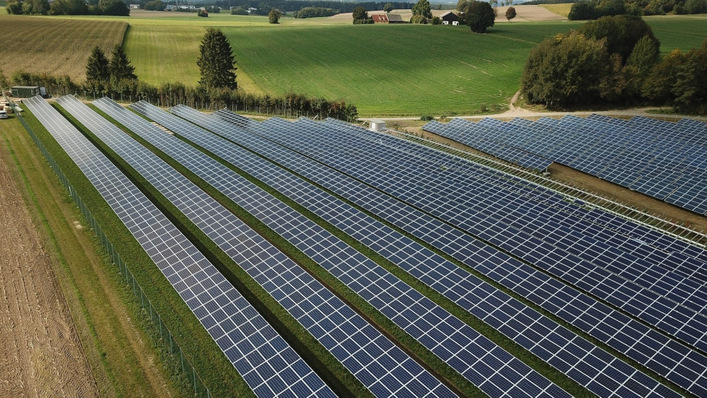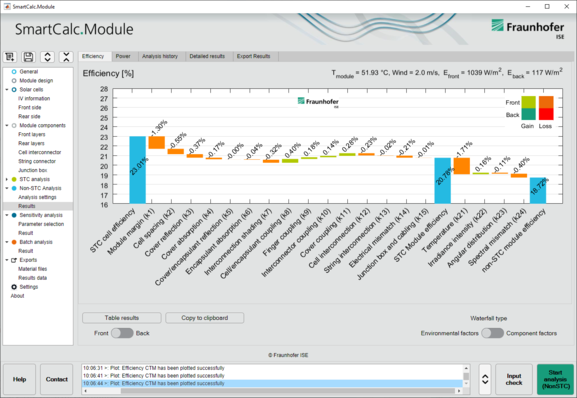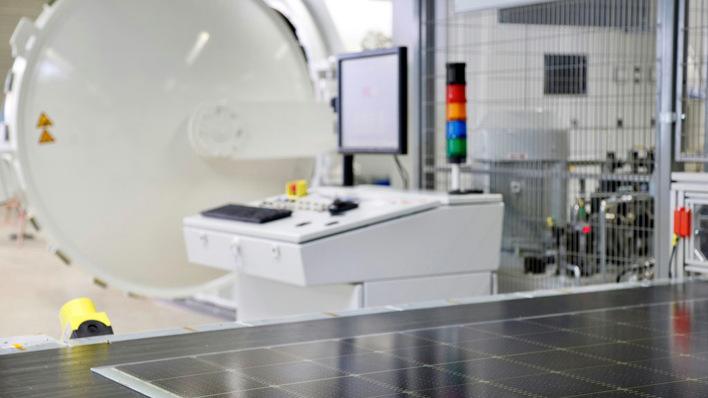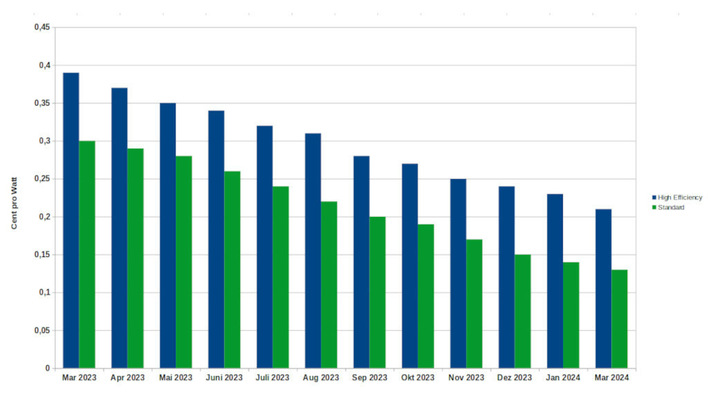The first step is for Manz to build a factory with an annual production capacity of 306 megawatts (MW) for the Chinese partners' joint venture. A 44-MW manufacturing plant designated for R&D use and further steps will follow. ZSW and Manz expect the momentum to pick up with this deal for China, with investors in other markets coming aboard. Several parties have already expressed interest.
Investment in mass production
"This investment in the mass production and further development of CIGS thin-film photovoltaics is a great success for our institute," says Prof. Michael Powalla, ZSW board member and Head of the Photovoltaics division. "The development of the highly efficient thin-film technology, which we initiated 20 years ago and have continued to pursue jointly with Manz since 2010, is now gaining real relevance for the market." Powalla added that this strategic alliance of Chinese energy companies and ZSW's industry partner Manz promises to yield gigawatt capacities in the production of CIGS thin-film photovoltaic modules.
Shenhua Group world`s largest coal producer
The state-owned Chinese energy group Shenhua Group Corporation Limited is the world's largest coal producer. It aims to promote the climate protection agenda with this investment. Shanghai Electric Group Company Limited, in turn, is a major engineering company, and its New Energy division has been posting strong growth lately. Environmental problems and the recent ratification of the UN Climate Change Agreement are driving China's transition to renewable energies.
Turnkey production provided by Manz
The Shenhua Group will make photovoltaic modules on turnkey CIGS production lines (CIGSfabs) provided by Manz, and then install these modules in solar power plants. The generated electricity is then to be sold and used for the company's needs. The agreements with Shanghai Electric and Shenhua are limited to the Chinese market. Manz is free to sell its plants in other countries. Several parties have already expressed interest in investing in a CIGSfab. The current deal applies exclusively to CIGS on glass.
CIGS efficiency improvements
CIGS-based thin-film technology has made huge strides in recent years. Efficiency has improved by 0.7 percentage points per year on average. ZSW holds the current world record for cell efficiency, which stands at 22.6 percent. CIGS thin-film solar modules achieve 14 to 15 percent. They are now as efficient and affordable as the silicon modules that dominate the market, but their full potential has yet to be tapped.
Plunge of manufacturing costs to 25 cents/W expected
At 40 US cents per watt, manufacturing costs have also arrived at a comparable level. It is expected that these costs will soon plunge to 25 cents per watt, and modules' efficiency will climb to 18 percent and higher. These remarkably competitive costs may be achieved even in small-scale production runs, which is sure to delight manufacturers.
More tolerant of shade
Another advantage is that it takes less energy and fewer materials to manufacture CIGS thin-film modules. These modules are also more tolerant of shade, a big selling point for people who own solar power systems. On top of that, their sleek matt-black look makes for an attractive addition to roofs and facades. All this was reason enough for ZSW to equip the facade of the institute's new building in Stuttgart with these modules. (HCN)
Stay informed, get our weekly newsletter. Register here: http://www.pveurope.eu/Newsletter
https://www.pveurope.eu/solar-modules/solar-frontier-speeding-pace-cis-module-technology







